How Mindfulness Can Make You Happy Every Day

Do you think you’re born naturally happy? If so, that’s great news! Even through the hardest of times, you can overcome them and be happy again. But, not everyone is born this way. And for those who weren’t necessarily born happy, you can change. You can become happier by practicing mindfulness.
For more information, check out this video Shauna Shapiro: Mindfulness Meditation and the Brain
What is Mindfulness
In short, mindfulness is being aware of something. It is a type of meditation where you focus on the present moment, whether you sense it or feel it. There are several ways to practice mindfulness, but they all try to help you relax your mind and body and focus on the moment.
The Happiness Set Point
Before diving into how mindfulness can help one feel happier, we must first talk about the Happiness Set Point. In psychology, it refers to our general level of happiness. Each person may have a different set point. People born happier may have a higher set point making them happy most of the time, whereas others may have a lower happiness set point.
Let's take the following as an example.
A person has a happiness set point of 5.
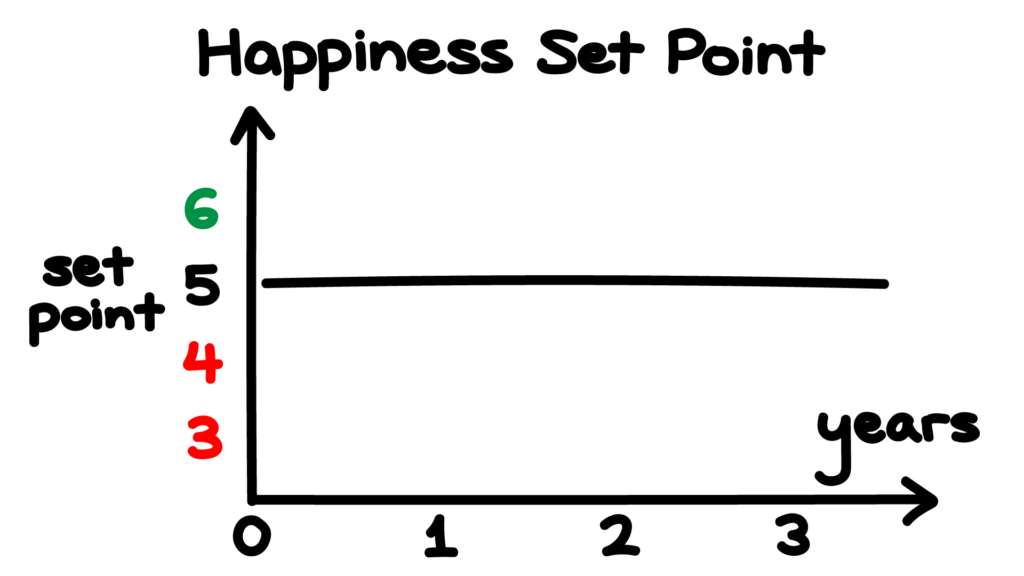
When they win a lottery, their happiness level will spike because who wouldn’t be happy winning a lottery. However, let’s say half a year later, their happiness level will slowly go back down to the set point.
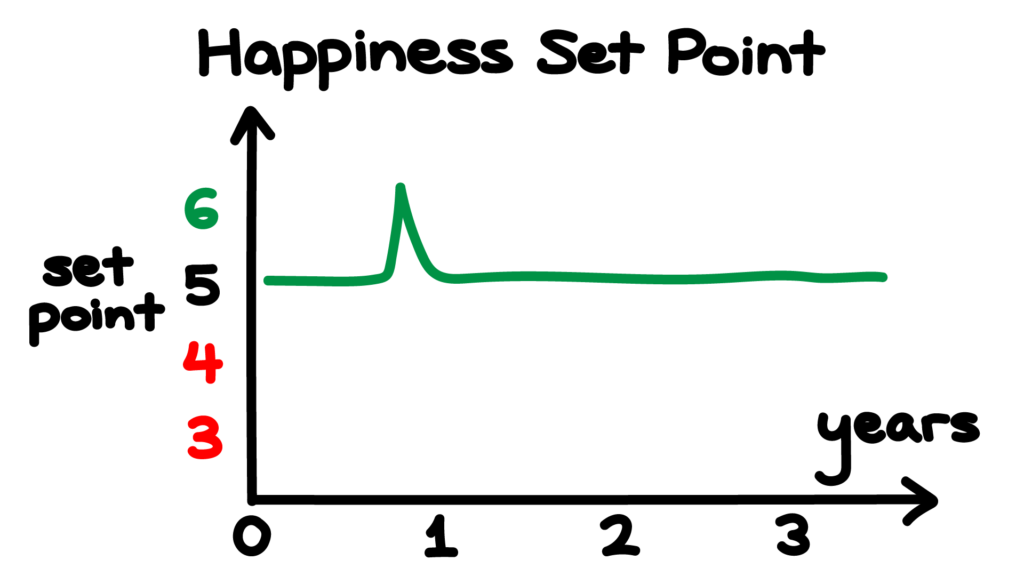
Similarly, if something unfortunate happens, their happiness level may suddenly drop. But over time, it will rise back to the happiness set point.
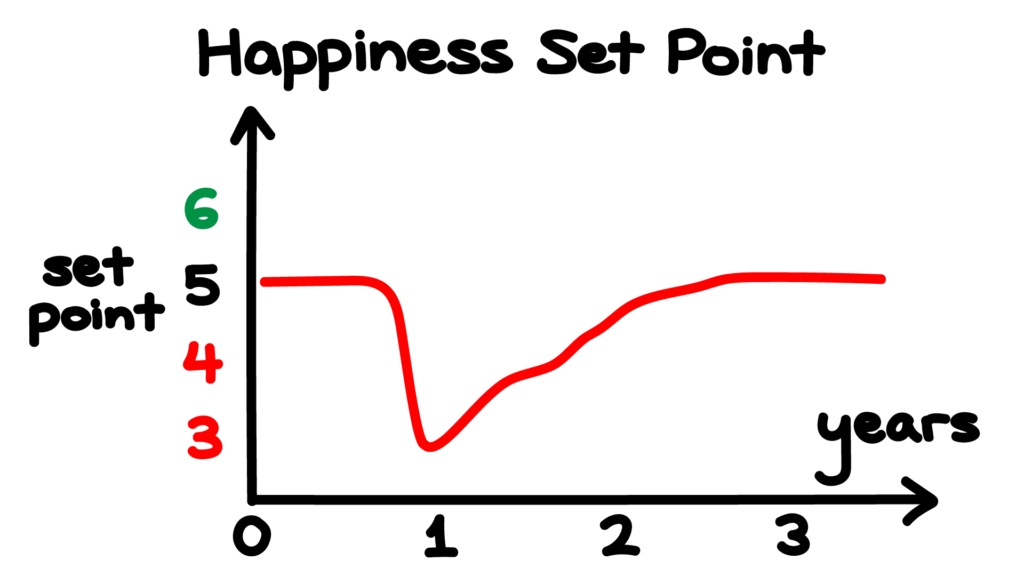
So for happy people, no matter what unfortunate things happen, they will eventually become happy again. But for people who weren’t born happy, it doesn’t matter how successful they become. They still won’t feel happy. And this is where mindfulness kicks in.
How Mindfulness can help
Mindfulness has the power to raise one’s Happiness Set Point and allow everyone to become happier. Instead of changing external circumstances for temporary happiness, one can focus on changing the interior landscape through training one’s mind.
What we practice grows stronger
As you practice mindfulness in your everyday life, you train your mind to embrace more positive emotions and vitality. A study has shown that people who practiced mindfulness show a higher left-to-right ratio in the prefrontal cortex than those who didn’t (meaning they felt happy, joyful, and vital).
By training your mind, you can change the structure of your brain. This allows your brain to embrace more happiness in your life, which increases your happiness set point. With a higher set point, anyone can feel happy without external circumstances.
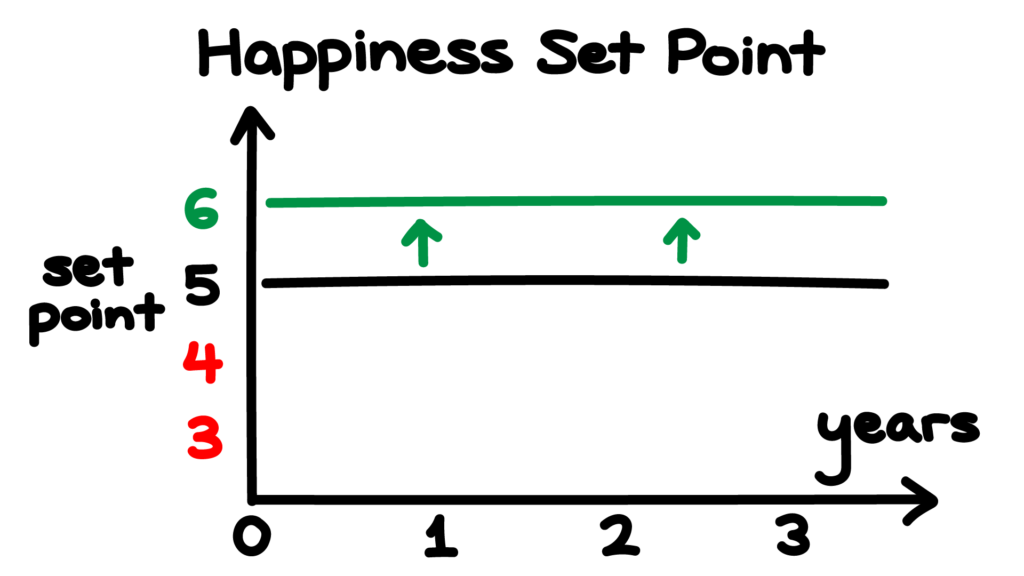
And, anyone who’s feeling upset will be less down because their happiness set point is now higher than before.
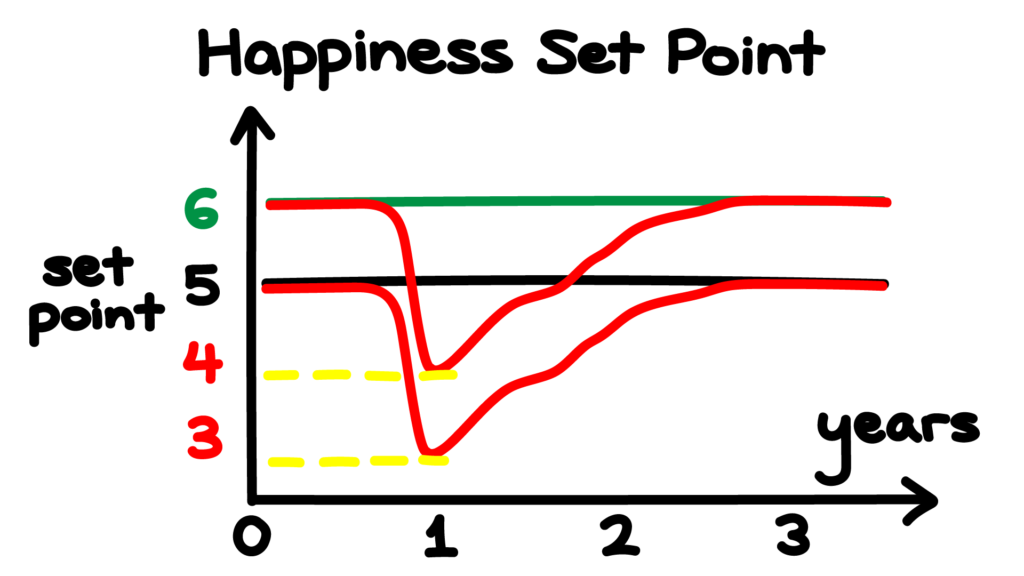
To Conclude
By practicing mindfulness, you can train your mind and increase your Happiness Set Point. You can feel just as happy even if you don’t win the lottery and less upset when something unfortunate happens. Not everyone is born happy, but we all have the choice to change our brains and make ourselves happy. It starts with practicing mindfulness.

Tired of seeing "the chair"? Try these 5 simple tips (tested by myself!) to declutter at home for a
Want to wake up early? Here's a little bingo challenge for everyone to look forward to every morning
A short story about the freezer crisis and how presence can make a huge difference. Based on a true



